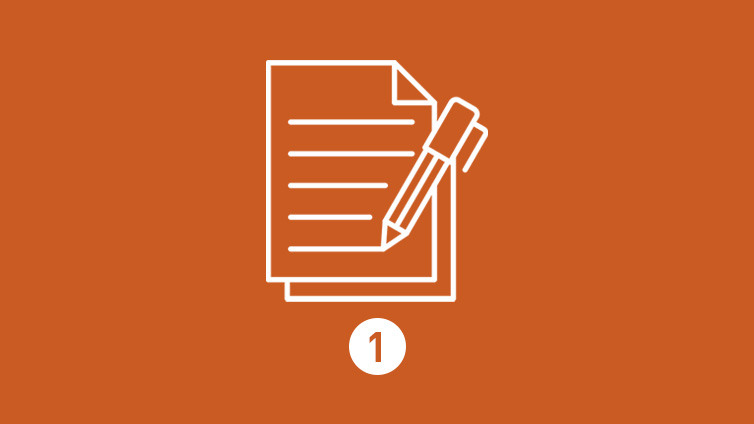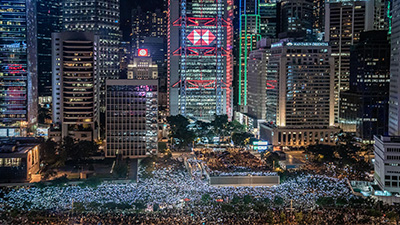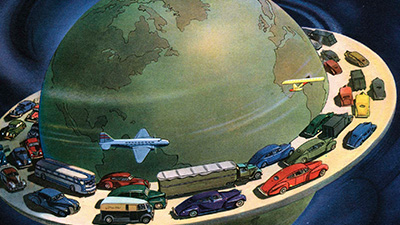Our Interconnected World
Teacher Resources
Driving Question: How are our lives today similar and different from each other, and how can history help explain these variations and commonalities?
This lesson introduces the big ideas linking globalization, nationalism, and internationalism to help you make sense of the systems that connect us.
Learning Objectives:
- Use evidence to explain how globalization has shaped both shared experiences and differences in the modern world.
- Evaluate the changes that took place from the Cold War to the era of globalization.
Vocab Terms:
- climate change
- environment
- globalization
- gross domestic product (GDP)
- inequality
- nation
- regulation
Opener: Our Interconnected World
To teach this lesson step, refer to page 2 of the Lesson 9.1 Teaching Guide.
Our Openers and Closers Guide provides information about these short, but important activities at the start and end of each lesson.
What do we mean when we talk about globalization? By connecting this word to others you already know, you’ll be able to shrink this global process into bite-sized pieces.
Unit 9 Notebook: Part 1
To teach this lesson step, refer to page 3 of the Lesson 9.1 Teaching Guide.
Informal writing is an important part of learning in this course. Read more in the OER Project Writing Guide.
Globalization has connected people and places like never before. Start exploring how shared challenges and diverse experiences have shaped our modern, interconnected world.
Our Interconnected World
To teach this lesson step, refer to page 3 of the Lesson 9.1 Teaching Guide.
Looking to provide feedback on your students’ adoption of the Three-Step Reading process? Read this conversation to learn how other teachers have handled this.
What is globalization, and how did it shape the world we live in today? These materials will get you thinking about how connections across time and place have created both opportunities and inequalities.
-
Guiding Questions
-
Before you watch
Preview the questions below, and then review the transcript.
While you watch
- What are social generations?
- Why were millennials the first “global” generation?
- What is globalization?
- What are some benefits of globalization?
- What are some drawbacks or challenges of globalization?
After you watch
Respond to these questions: Do you agree with the video that millennials were the first global generation? Are there any earlier generations or historical periods you think would qualify? Why or why not?
-
Guiding Questions
-
Before you read
Preview the questions below, and then skim the article. Be sure to look at the section headings and any images.
While you read
Look for answers to these questions:
- What is the World Wide Web, and how has it changed our lives?
- How does globalization produce inequality?
- How did the world wars produce a new type of globalization?
- How has globalization affected the environment?
After you read
Respond to this question: After reading this article, has your opinion of globalization changed? Do you think the process of globalization has been positive or negative for humanity?
Globalization Frames
To teach this lesson step, refer to page 5 of the Lesson 9.1 Teaching Guide.
The OER Project Video Guide includes best practices for using video in the classroom.
Understanding the connections and complexities of our modern world can feel overwhelming. The frames can help you grapple with the complexity and see the connections more clearly.
-
Guiding Questions
-
Before you watch
Preview the questions below, and then review the transcript.
While you watch
Look for answers to these questions:
- In what ways are we all connected as part of a global network?
- How can we view globalization through the lens of the production and distribution frame?
- In what ways are we members of global communities?
- What are some problems with globalization?
After you watch
Respond to this question: How can looking through the three frames help you evaluate the impact of globalization?
Key Ideas
Closer: Our Interconnected World
To teach this lesson step, refer to page 6 of the Lesson 9.1 Teaching Guide.
Now that you’ve been introduced to globalization, see if you can boil down this huge and complex process into a simple advertising jingle.
Introduction to Globalization
To teach this lesson step, refer to page 6 of the Lesson 9.1 Teaching Guide.
We know the world is becoming more connected by the day, but what are the consequences? In this article, you’ll examine the good, the bad, and the ugly of globalization, and you’ll consider your role in making it a positive force in the future.
-
Guiding Questions
-
Before you read
Preview the questions below, and then skim the article. Be sure to look at the section headings and any images.
While you read
Look for answers to these questions:
- What late-twentieth-century trends led people to create the term globalization?
- What are some historical trends that accelerated globalization before the late twentieth century?
- What are some impacts of globalization in terms of migration and economics?
- What are some positive impacts of globalization?
- What are some negative impacts of globalization?
After you read
Respond to these questions: Do you believe globalization has had a positive impact on your family and community? Why or why not?






